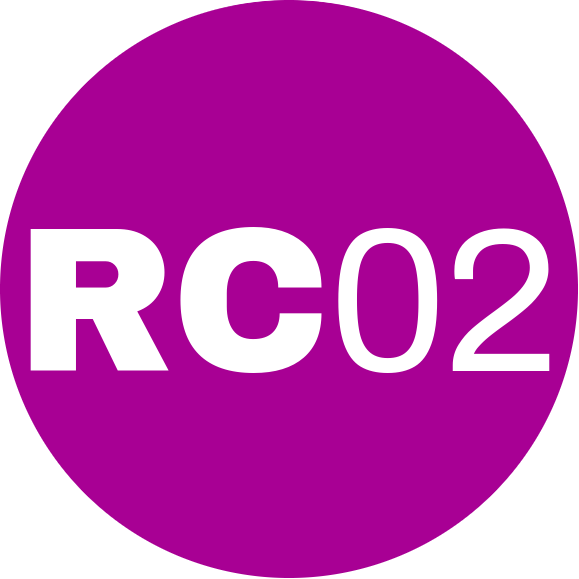The European Research Council Consolidator project “Rise and Demise of Industrial Modernity” (RiDe) at the University of Tartu (Estonia) is looking to fill a fully funded postdoctoral position (3 years with a possibility of extension, see below). The project is led by Laur Kanger, Professor of Sustainability Transitions and co-author of the Deep Transitions framework (see here, here and here) underpinning the project.
About the project
Contemporary societies are underpinned by industrial modernity: a set of commonly shared ideas, institutions and practices related to the natural environment and technoscience. Having historically unleashed massive leaps in productivity, economic growth and societal welfare, many traits of industrial modernity have now become maladapted to the current socio-ecological polycrisis. As a result science and technology promise to solve the grand challenges of climate change, resource depletion and loss of biodiversity with one hand, only to keep intensifying them with another.
RiDe will use a new Deep Transitions framework from the sustainability transitions field to provide an overarching synthesis on the acceleration, crisis and transformative prospects of industrial societies from 1900 to the present.
It focuses on 3 questions:
what are the major historical continuities and emerging ruptures in industrial modernity?
What are the mechanisms through which technoscience keeps blocking transformative environmental practices?
In which countries is major transformative change most likely to occur?
The results will be synthesized into the first macro-level middle-range process theory in transitions studies, offering a new comprehensive, historically-informed and empirically-backed interpretation of industrial modernization for sustainability science.
Topic description
The purpose of the postdoctoral research project is to map the long-term evolution of different institutions and practices related to the natural environment and technoscience (e.g. institutional tendency to react to the consequences of technological innovation, reliance on fossil fuels and minerals as key inputs) in G20 countries from 1900 to 2025 through the combination of different databases (e.g. party platforms, material use, scientific publications, patents). The results are expected to contribute to:
a typology of industrialization pathways developed by the research team;
an index comparing the historical legacy of industrial modernity in different countries.
The research builds on the team’s prior work on measuring long-term continuities and ruptures in the foundational ideas, institutions and practices of industrial societies (see here and here).
Education
PhD or an equivalent qualification.
Work experience
The project assumes being comfortable with quantitative time-series analysis involving gathering and combining data from a range of different existing databases. The ideal candidate will have solid background in any two of the following and willingness to expand the skill-set as required:
scanning existing literature for possibly relevant databases;
indicator development, bridging theoretical concepts with available data;
working with large databases (e.g. PATSTAT, ECOLEX, Web of Science);
quantitative time series analysis, including structural break detection and clustering techniques;
composite index development.
Command of additional skills and experience (e.g. text mining techniques, mixed methods approaches, work in interdisciplinary teams) is considered a bonus.
Preference is given to candidates with a background and prerequisite skills in one of the following fields: sustainability transitions studies, science and technology studies, innovation studies, sociology (e.g. economic, political, environmental, historical), political science, economics (e.g. economics of innovation, ecological economics), history (e.g. economic, environmental, science and technology), sustainability science (or a related field). Alternatively, a PhD degree in another field combined with a strong and proven interest in sustainability issues also constitutes a good fit.
Language skills
Very good command of oral and written English.
The documents required for applying
A letter of application to the Rector.
Academic CV including a list of publications (accepted, under review, preprints).
A 2,500-3,000 word research statement containing information on: a) The candidate's past research, especially the fit between the candidate’s educational background, skills and research interestes with the current project; b) Envisioned contribution to RiDe’s research, including specific ideas on how to advance research on the topic (e.g. indicators, data sources, research design). The candidate is encouraged to consult the team’s prior work on industrial modernity for drafting this section .
A copy of a document (including its annexes) which shows the candidate to hold the required qualification (with authorized translation into Estonian, English or Russian if the credential is not in Estonian, English, Russian, Finnish, Swedish, French, Italian, Ukrainian and Belarussian languages). A candidate can be required to submit the original or a certified copy of the document (including its annexes) showing the candidate to hold the required qualification. If the candidate has acquired the higher education in question abroad, he or she may be required to submit an assessment issued by the Academic Recognition Information Centre (the Estonian ENIC/NARIC) of his or her qualification in respect of the qualification requirements for the position.
Names and contact details of two academic referees.
Applicants passing the first stage of evaluation will be invited to an interview (either in person or virtual).
Please contact kairi.herik@ut.ee for any practical matters regarding the application process. Since this is a project-funded postdoctoral position, the prospective candidates are strongly encouraged to get in touch with Laur Kanger (laur.kanger@ut.ee) with any substantive questions about research planned in the project.
For details, visit: https://euraxess.ec.europa.eu/jobs/337755

